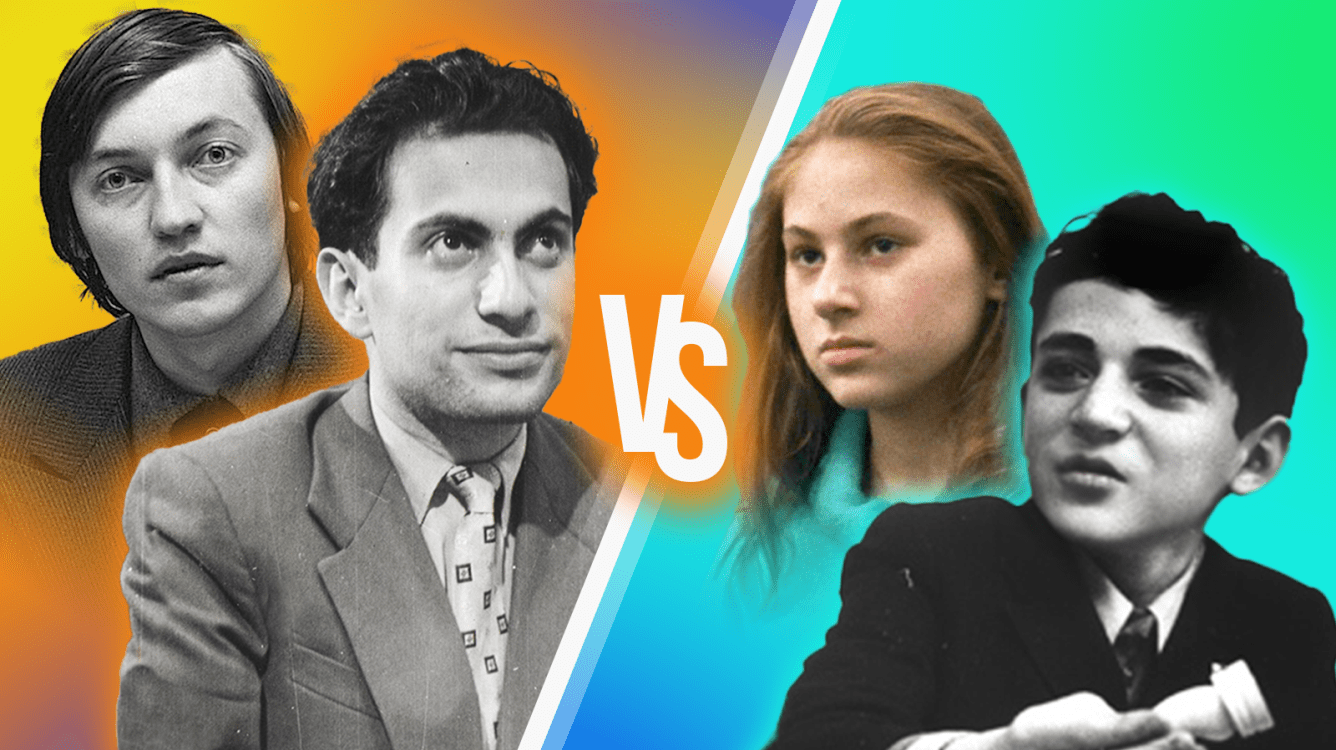
5 Times Chess Veterans Upset Rising Stars
Today, the stage is set mainly for the young. Celebratory news pieces, including our own on Chess.com, often highlight the accomplishments of the next up-and-coming player. These days, there's lots of talk about GMs Alireza Firouzja, Nodirbek Abdusattorov, Gukesh D, Praggnanandhaa R, Aleksandra Goryachkina, and more. In a few years, it will be about names we have not yet heard.
So what happens to the veterans? They go on fighting, yet their song is seldom sung. This article acknowledges the great wins of legendary players past their prime against the rising stars of the future.
- Caruana-Korchnoi 2011
- Smyslov-Ivanchuk 1988
- Kasparov-Petrosian 1981
- Tal-Kasparov 1992
- Karpov-Polgar 1994
- Honorable Mentions
Caruana-Korchnoi 2011
GM Viktor Korchnoi, as far as veterans go, is simply a Goliath. His first game in the database was played in 1945; his last game, 2015. His is one of the longest-spanning careers in chess, especially when it comes to elite, world-champion-level players.
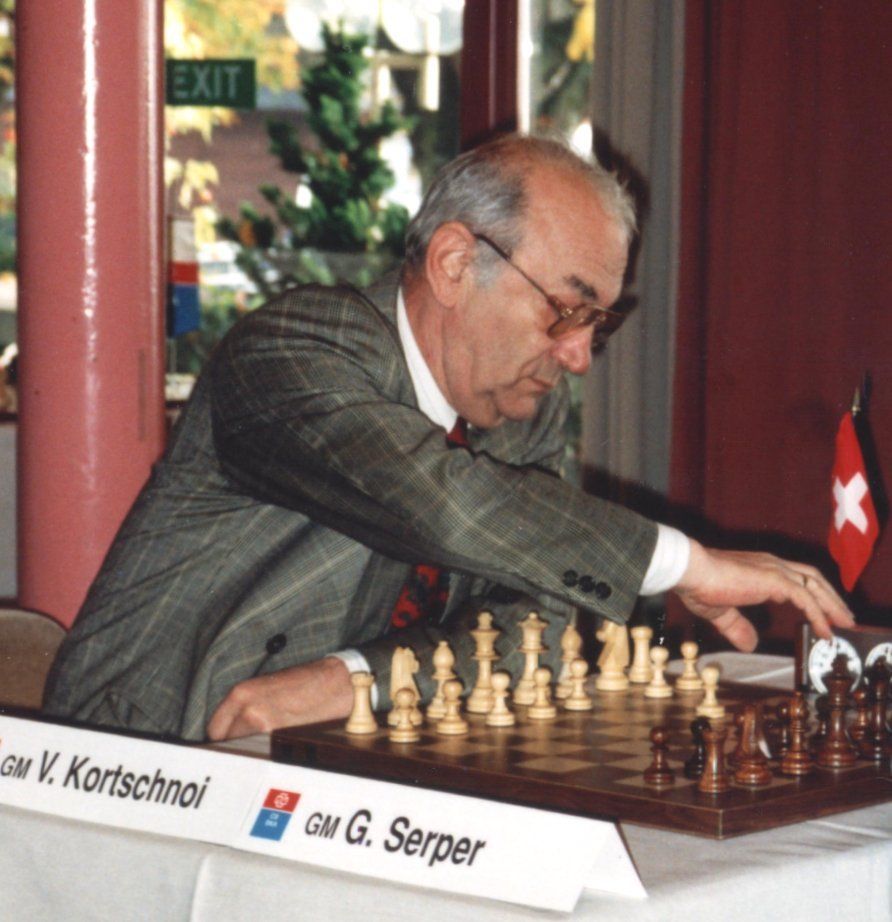
Among others, say Akiba Rubenstein or Paul Keres, Korchnoi is considered to be one of the strongest chess players to never become a world champion. His 1978 World Championship Match vs. GM Anatoly Karpov was one of the most heated and closest matches in history. Full of just about as much drama as the one between GMs Bobby Fischer and Boris Spassky in 1972, it was decided by just one game—game 32. Had Korchnoi won, he too would have been a world champion.
The match was dramatized in the Russian movie Champion of the World in 2021.
In 2011, he defeated 18-year-old GM Fabiano Caruana, 61 years his junior and already rated 2721. The ex-Soviet player, who achieved the grandmaster title in 1956, played chess like a bulldozer in this immortal game.
Smyslov-Ivanchuk 1988
When discussing the longest careers in chess, World Champion Vasily Smyslov should be another name to come immediately to mind. His first game was in 1935, and he played until 2001. An author of several books, he participated in Candidates tournaments across four decades, famously facing GM Garry Kasparov in the 1984 Candidates final.
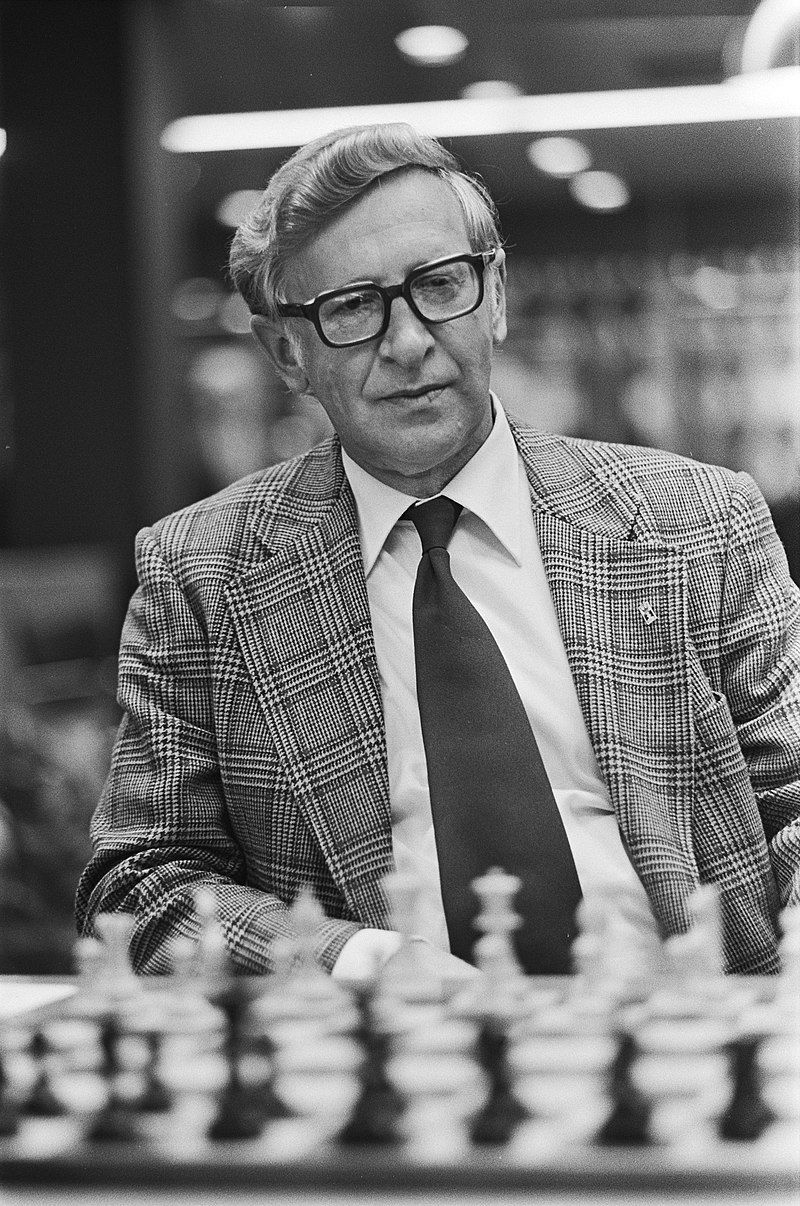
In the 1988 USSR Championship, the 67-year-old Smyslov defeated GM Vasyl Ivanchuk, who was only 19 at the time. Of course, the young Ukrainian grandmaster would become a household name in the chess world, sporting convincing wins against virtually any player you can think of.
Kasparov-Petrosian 1981
World Champion Tigran Petrosian, aged 52, defeated the 18-year-old phenom Kasparov with a brilliant defensive move. The Armenian legend, "Iron Tigran," went on to finish second in the tournament overall, a half-point short of GM Alexander Beliavsky. To give you an idea of how strong the field was, the other top finishers were GMs Lajos Portisch (tied-third), Jan Timman (tied-third), followed by Ljubomir Ljubojevic, and on 5.5/11 were Ulf Andersson, Spassky, and Kasparov.
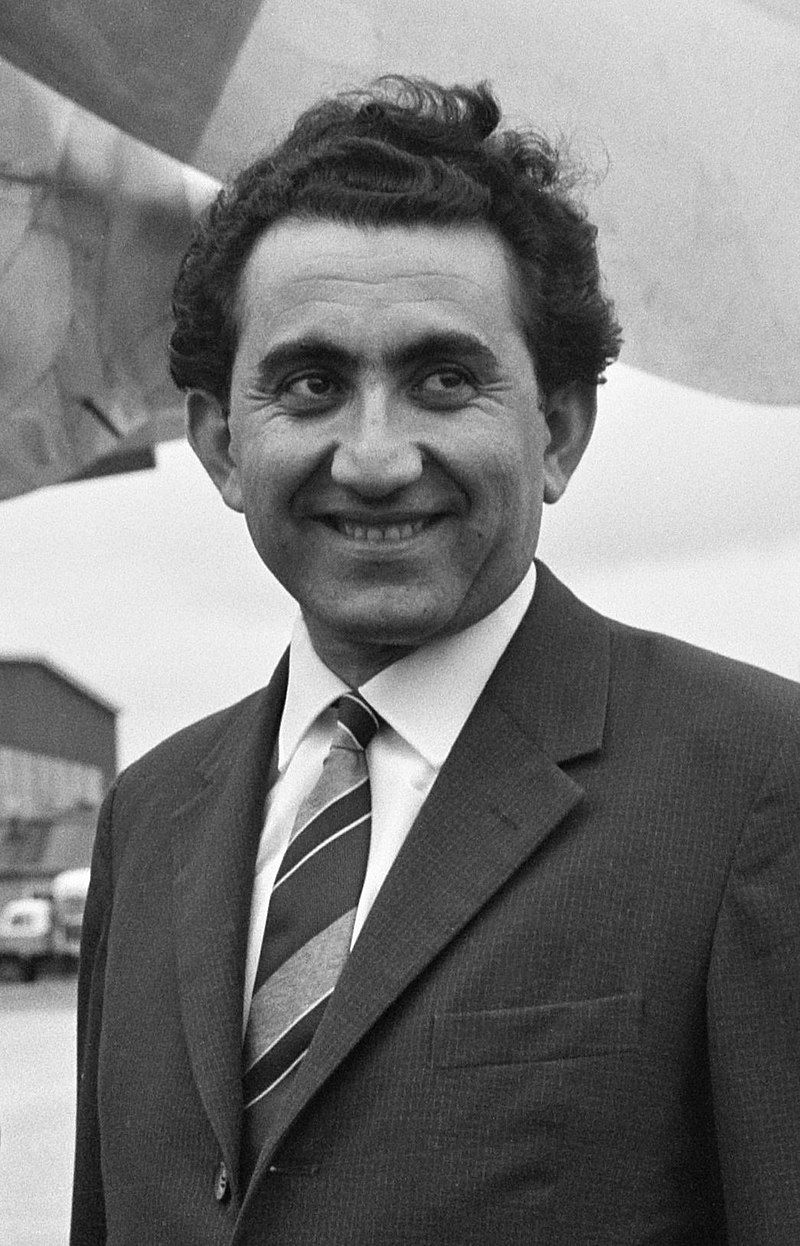
When we talk about the most brilliant moves in chess, most of them are not king moves. We also prefer to talk more about attacking than defending. But don't sleep on this one; this is certainly one of the greatest and most fearless king moves in the history of the game, played against one of the most fearsome attackers.
Notes by Sam Copeland, from his blog.
Tal-Kasparov 1992
World Champion Mikhail Tal, who earned the title in 1960, was a monstrous tactician even in older age. The "Magician from Riga" famously made intuitive piece sacrifices in classical chess, let alone in blitz, and would be succeeded by other aggressive and exciting Latvian players such as GMs Alexei Shirov and Alexander Shabalov.
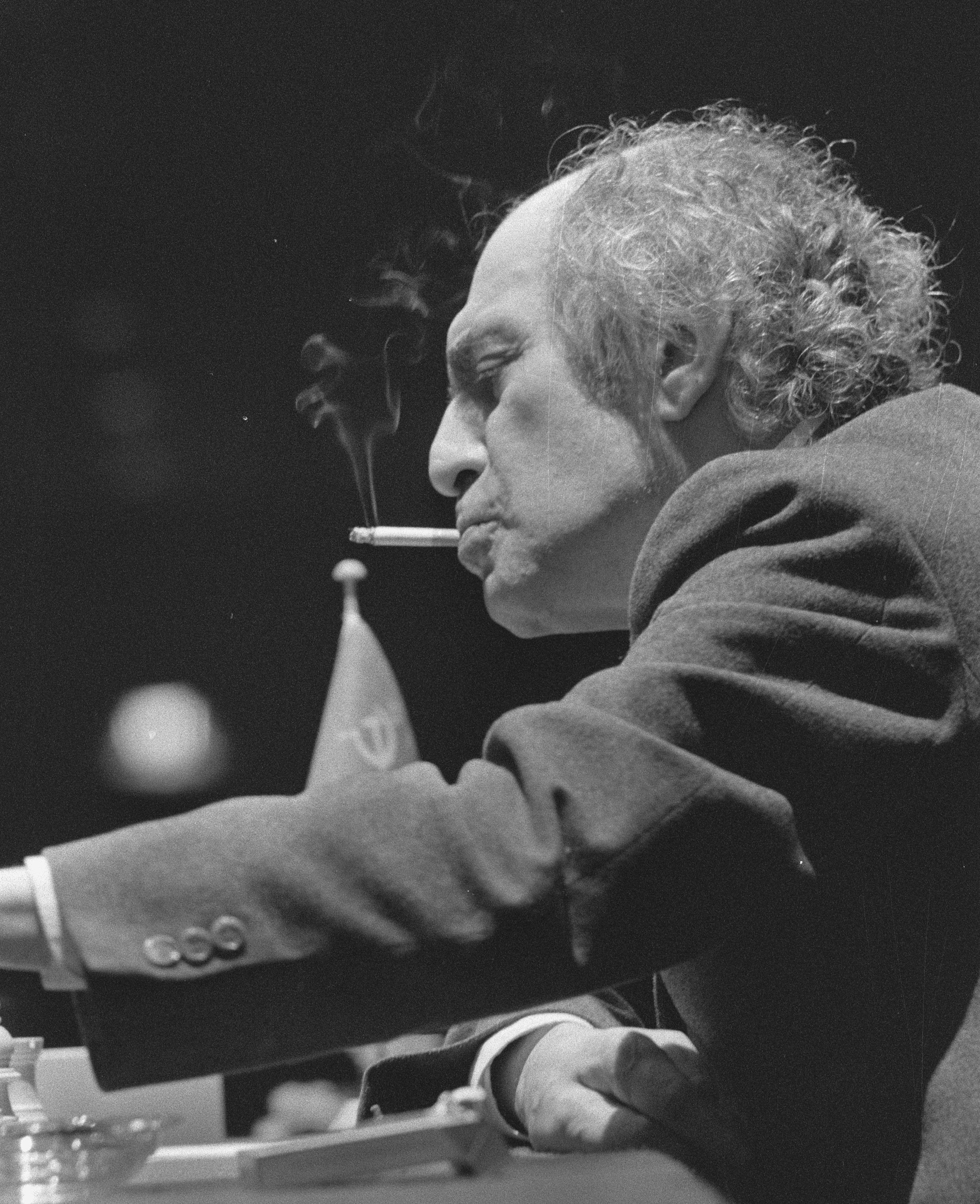
At 51 years old in 1988, despite declining health conditions, he won the official World Blitz Chess Championship. In 1992, he was taken into a hospital for surgery for a severe kidney illness but allegedly snuck out to play in the 1992 Moscow Blitz Tournament. Kasparov won all his games to win the tournament but one.
In the documentary Queen Sacrifice, Kasparov recalls, "He incorrectly sacrificed a piece, I beat off the attack, but I lost on time. I couldn't solve the problems Tal set. This is probably the higher truth in chess, that even in his final days he was able to play the kind of chess that made him immortal" (translated from Russian by yours truly).
I couldn't solve the problems Tal set. This is probably the higher truth in chess, that even in his final days he was able to play the kind of chess that made him immortal.
—Garry Kasparov
Tal passed away the next month, and this was his final game.
Karpov-Polgar 1994
While not exactly a senior in 1994, Karpov was already in his 40s when he scored 11/13 in Linares 1994, 2.5 points ahead of second-place Kasparov, an almost unthinkable result in a field with no fewer than one world champion and three future world champions (counting both FIDE and PCA): GMs Kasparov, Vladimir Kramnik, Viswanathan Anand, and Veselin Topalov.
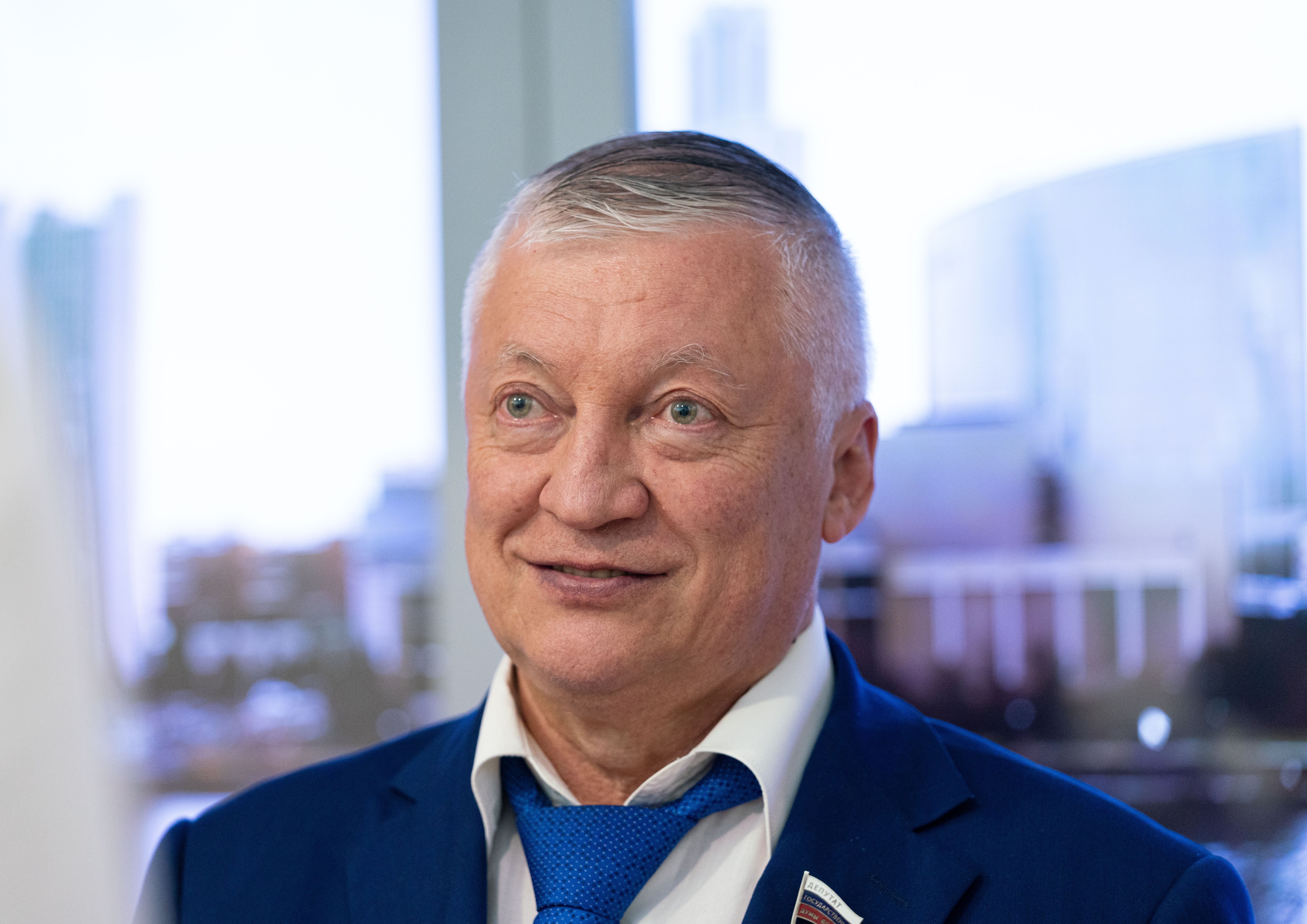
While not exactly an old dog—he was still the FIDE world champion at the time, although PCA World Champion Kasparov was number one by rating—by today's standards, a similar result in middle age would be a feat of mythical proportions. Along the way, one of his nicest wins, in signature Karpovian style, was over the young, burgeoning GM Judit Polgar, 18 years old and the world number-22.
Honorable Mentions
There are a few additional examples, which happen to be more recent, that deserve to be mentioned in this article. If you were following chess in 2017, then you definitely did not miss GM James Tarjan's scintillating win over Kramnik, after having retired from chess and working as a librarian for three decades.
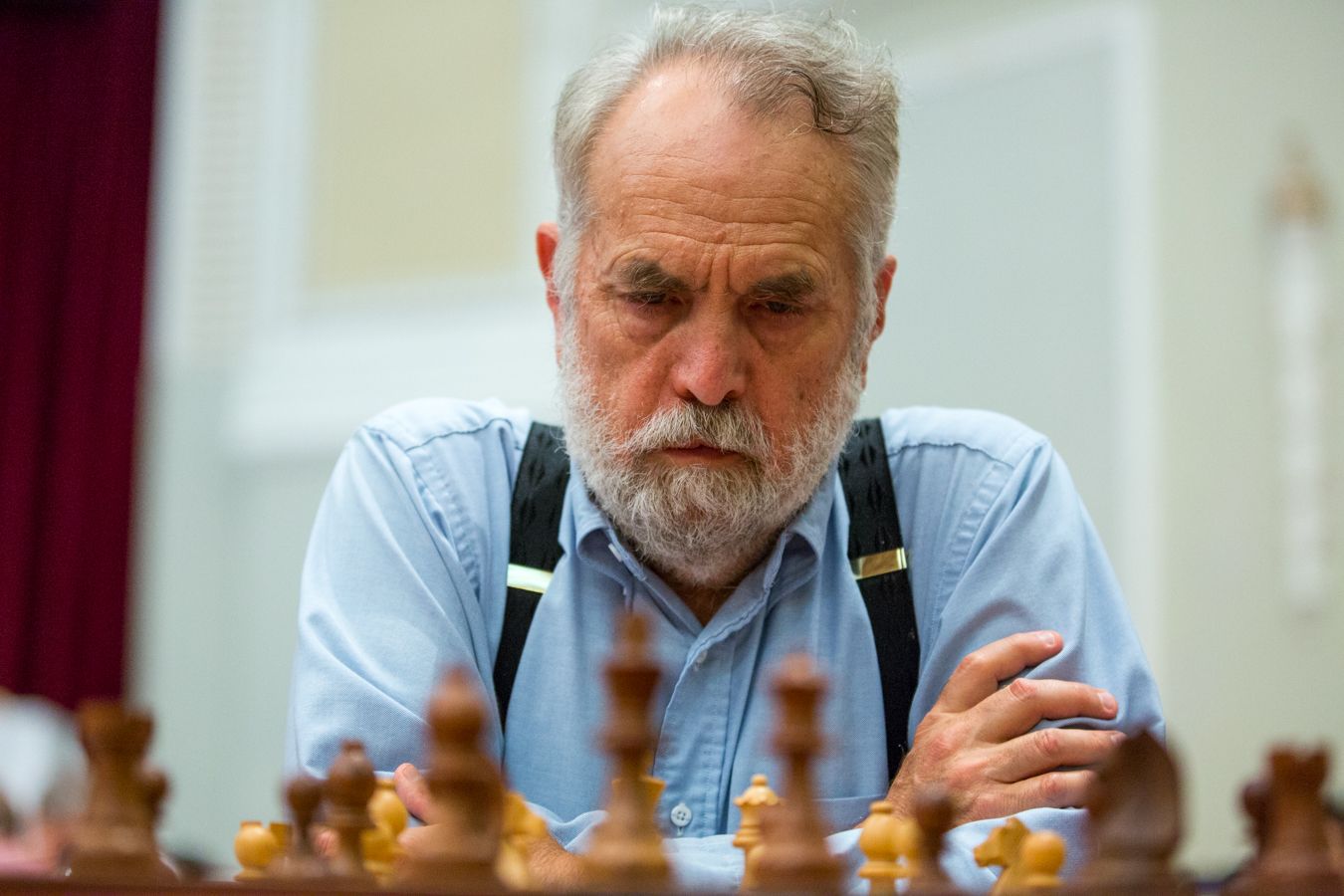
Such an example would normally make it into the five above, but Kramnik (respectfully) was not exactly a "young star" in 2017. Still, this game will go down through the ages as an unforgettable upset by an older player.
Annotations by FM Mike Klein, taken from this article.
Even more recently, GM Pia Cramling (yes, mother of popular streamer WFM Anna Cramling) defeated her younger opponent in nine moves at the 2022 FIDE Women's Chess Olympiad. You can check out her daughter's recap in the video below.
A notable mention has to be the most disparate public encounter between chess players in terms of age: between the late GM Yuri Averbakh (the oldest GM ever, who passed away at age 100 this year), then 95 years old, vs. Misha Osipov, four years old. Although Osipov won their game, largely due to Averbakh's failing vision, it is incredible to see a nearly 90-year difference between two chess players.
I must mention that, in my research, I was saddened to discover there are not many examples of veterans taking down the absolute best, young, talented stars in their prime. I suppose this should be unsurprising, despite the few remarkable exceptions—and we are talking about world-champion-level players. There are certainly more examples of upsets the lower down the ladder you go.
This is not to say that remarkable feats by older generations do not happen, that the old guard still does not win tournaments. Please let's not forget cases like GM Boris Gelfand, who won the 2009 Chess World Cup, then the 2011 Candidates Tournament, and faced Anand in a world championship featuring two players in their 40s.
In his book Dynamic Decision Making In Chess, Gelfand writes about ageism: "In 2014 a lot of chess fans were unhappy that Nakamura was not in the Candidates in Khanty-Mansiysk. He had failed to qualify, and also had not had a great 2013. I, on the other hand, had won and tied for first in many big events in 2013, but only my wife and I should have gone!" (He goes on to compliment Nakamura on qualifying for the 2016 Candidates.)
... I, on the other hand, had won and tied for first in many big events in 2013, but only my wife and I should have gone!
—Boris Gelfand
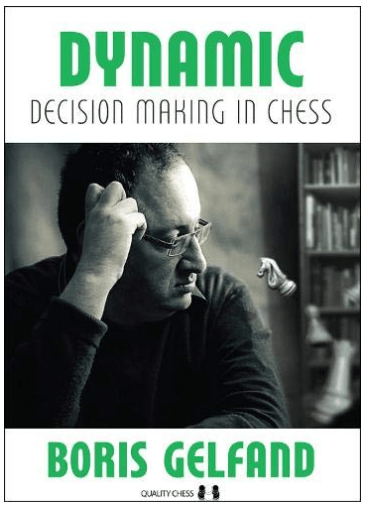
With that being said, we should have all the more reason to appreciate the feats of our old heroes—cherish the finest examples we do have, for their rarity and exceptional nature.
In closing, I'd like to thank all the editors who made this article possible and GM Rafael Leitao for providing additional lines in key areas of the analysis above. He was quoted and credited in each case.
What did you think of the selected games? Can you think of any examples not mentioned in this article? Leave a comment below! And thanks for taking the time to read.




